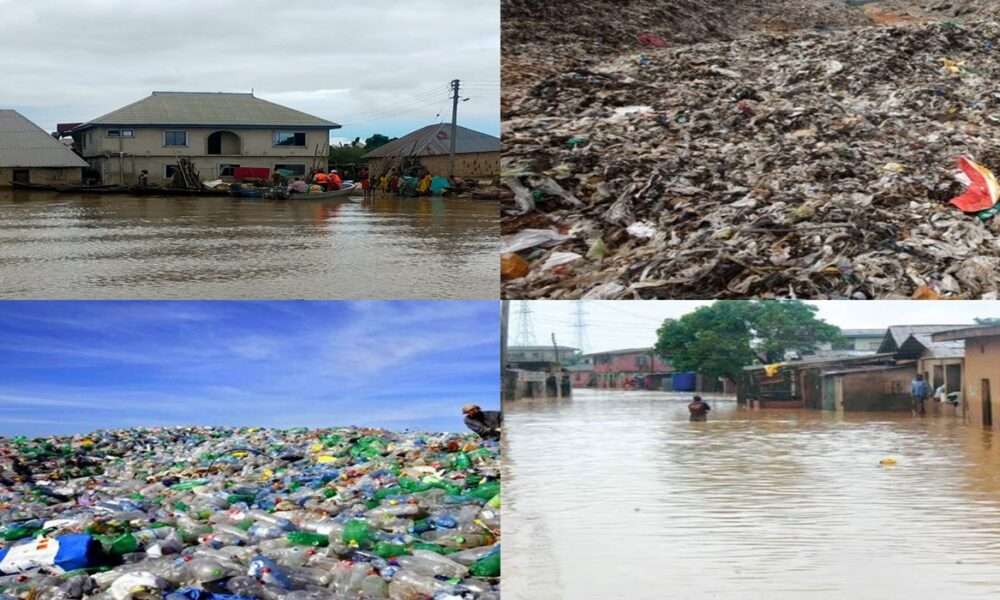Few years back, I was opportune to attend a waste management conference organized by the Oyo state government in collaboration with the World Bank, which brought together industry experts. It was a World Bank-assisted project aimed at delivering the state from the menace of flood erosion.
Ibadan the state capital has a long history of flooding, as the city has been been experiencing flooding since 1951.
In that event, industry experts discussed how to completely eradicate the recurrent flooding issue, and discussion around waste management and flooding took center stage.
Over the years, the government through funded research found out that the major cause of flooding in Oyo was the mismanagement of waste products that block canals, gutters, and drainages.
So in finding a lasting solution to this ravaging menace of waste pollution in the state, they engaged experts who could manage waste by possibly recycling and upcycling waste.
The experts came to conclusion that the state’s waste management board should create avenues in which people can easily dispose of their wastes, while disposed wastes can be separated into three types of waste.
They explained that recycling and upcycling innovative solutions can significantly contribute to reducing waste and its effects on the state.
Read Also: Environmental, economic benefits of tree planting
Today we will be discussing about three types of wastes that were discussed in the meeting and the benefits of converting these wastes for the good of any community.
Here are three major types of wastes:
1. Vegetable wastes
2. Recycle wastes
3. Upcycle wastes.
1. Vegetable waste is wastes that comprise mainly of vegetable matter, which can be decomposed by microorganisms or natural agents.
Here are some examples of Vegetable wastes:
· Rotten
· Peels
· Animal shells
· Slurries
· Foods
There are two major benefits of vegetable waste.
Farmers can convert vegetable wastes into fertilizers for agricultural purposes.
Secondly, vegetable wastes can be converted into natural sources of energy which can replace fossil fuels as a good alternative.
2. Recyclable wastes are wastes that can be converted into new products.
These kinds of wastes are non-biodegradable wastes meaning they cannot be decomposed or dissolved by natural agents or microorganisms.
Here are some examples of recyclable waste:
· Plastic and Bottles
· Food and Beverage containers.
· Paper.
· Glass.
· Metals
· Glass
The benefits of recycling cannot be over-emphasized, as new products will be formed in the process, and the need for new raw materials for production will greatly reduce as the recycled products can replace new raw materials.
Recycling waste materials such as plastic, bottle, beverage containers, glass and metals can help reduce land pollution and landfill waste that end up blocking sewages and drainages, which in turn help conserve natural resources.
Other state governments can learn from the strategies of the Oyo state government in setting up different recycling initiatives such as community recycling programs within local government areas and implementation of waste management systems in different municipals, which will definitely generate positive impacts of recycling in the state.
3. Upcycleable wastes are materials that have been discarded or abandoned and can be transformed into new products of higher value.
Here are some examples of Upcycleable waste:
· Old furniture can be refurbished into unique pieces.
· Transforming bottles into lamps
· Repurposing textiles into bags or accessories.
Upcycling can then be defined as the process of creatively transforming waste materials, by-products or unwanted materials into new materials with greater quality to foster a friendlier environment.
Unlike recyclable wastes that are melted and reshaped into new materials, upcycleable wastes are creatively repurposed.
Upcycling also has some benefits such as the encouragement of the use of imagination and innovation in redesigning an object into new items. Upcycling does not only reduce waste, but also fosters creativity and resourcefulness.
